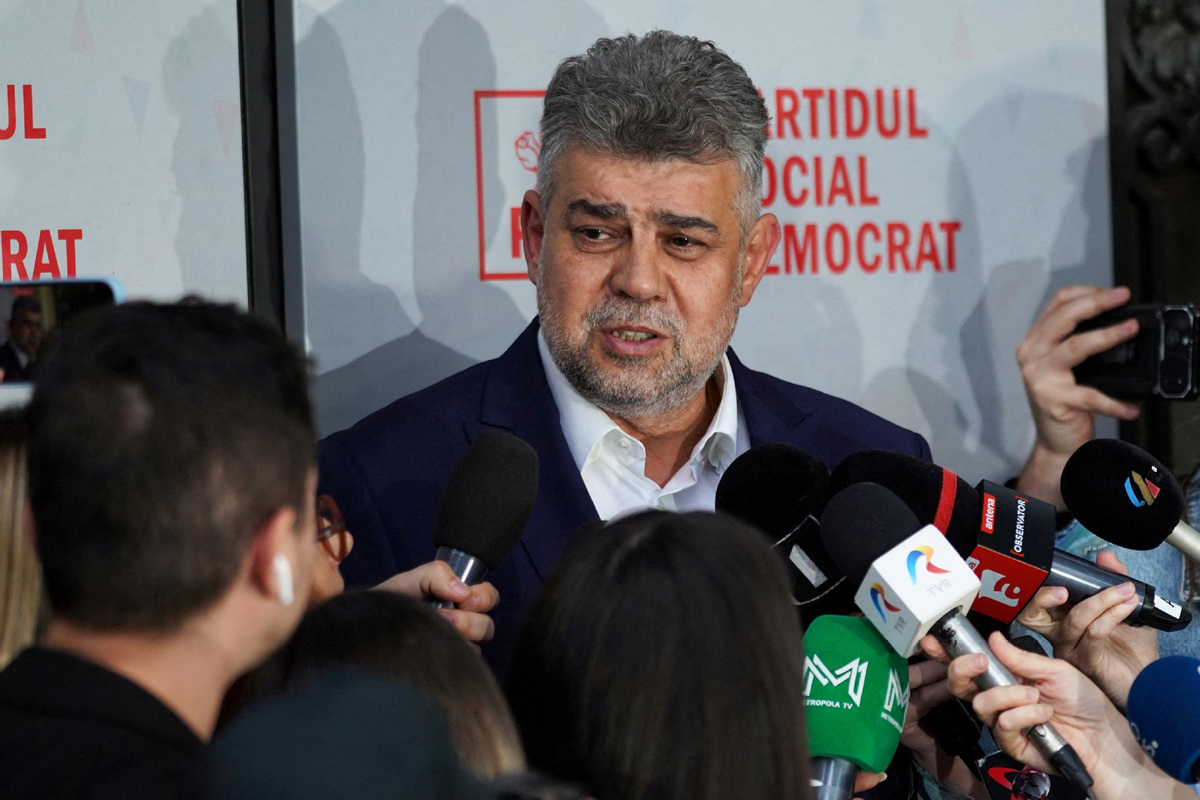Far-right vote win forces Romania's PM to quit


Romania's Prime Minister Marcel Ciolacu announced his resignation on Monday, signaling a political shift following far-right leader George Simion's victory in the first round of the presidential election re-run on Sunday.
Ciolacu confirmed his center-left Social Democrats, or PSD, would exit the pro-Western coalition, a move that effectively dismantles Romania's governing alliance.
"This coalition is no longer legitimate," Ciolacu told reporters. "The next president was going to replace me anyway, that's what I've read."
While Cabinet ministers will remain in interim roles until after the May 18 presidential run-off, the coalition's collapse signals potentially significant changes in Romania's political direction, reported Reuters.
Simion, a hard-right eurosceptic, secured a decisive 41 percent of votes, demonstrating growing populist sentiment in the nation, which is a member of the European Union and NATO.
He will face independent centrist Bucharest Mayor Nicusor Dan in the run-off, after coalition candidate Crin Antonescu's elimination.
The political upheaval reflects broader changes in Romanian politics since December's parliamentary election.
While Ciolacu's PSD secured the most seats in that vote, the combined strength of Simion's Alliance for the Union of Romanians, or AUR, and two other far-right parties captured more than a third of parliament, establishing themselves as a formidable political bloc.
The fracturing of the coalition, which united Social Democrats, centrist Liberals, and the ethnic Hungarian UDMR in maintaining Romania's pro-Western orientation, creates a critical challenge for the country's traditional parties.
An analyst cited by Reuters warned the implications extend beyond Romania's borders.
"The problem now isn't that Romania is in a hard place, but that the European Union is, should George Simion win," said Cristian Pirvulescu, a professor at the Bucharest National School of Political Science and Public Administration.
"The anti-European group within the EU will become more substantial, which could even lead to a change of course for (Italy's Prime Minister) Giorgia Meloni. The group can become important and it could influence the May 18 Polish presidential election," said Pirvulescu.
Both candidates for Romania's presidential run-off claim anti-establishment credentials while offering contrasting visions, according to analyst Elena Calistru, from independent Romanian monitoring group Funky Citizens.
"The outcome will reveal whether anti-establishment sentiment necessarily translates to anti-European positioning, or if Romania can channel its desire for change into constructive democratic renewal," she told the BBC.
Sunday's result reflects deep public discontent, according to observers.
It was "a radical manifestation of hostility towards the current political establishment", analyst Radu Albu-Comanescu told Romania public radio.
Simion's campaign has gained significant traction through his criticism of the government's financial aid to Ukrainian refugees.

































